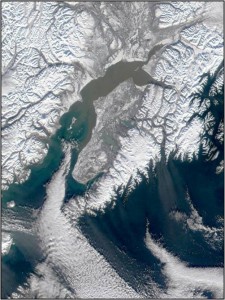- Location: Homer, Alaska
- Dates: March 9-10
- Conference Website
Scope of the Conference: Presentations on research, citizen science, and Local and Traditional Knowledge (LTEK) projects on some aspect of the Kachemak Bay ecosystem. Presentations can also include research being conducted elsewhere that has strong linkages to the dynamics of the bay and our communities.
Audience: The conference will provide an opportunity for researchers to present their findings to each other and to the Kachemak Bay communities who depend upon the region’s diversity of resources. There are two workshops in conjunction with the conference that focus on enhancing science communication within our communities. The March 8th workshop, instructed by Nancy Baron (COMPASS), targets scientists, media outlets, and decision-makers and the March 9th workshop, instructed by Marilyn Sigman (COSEE), targets scientists and teachers. Stay tuned for specific workshop details.
Sessions:
- Observing the Kachemak Bay Ecosystem (Friday afternoon, March 9th)
)Presentations or posters that highlight the results of long-term monitoring programs, recent directed research, and/or inter-related dynamics of the bay ecology and Kachemak Bay communities are invited.
- Managing the Kachemak Bay Ecosystem (Saturday morning, March 10th)
Presentations and posters that provide evidence of trends (and/or the various magnitudes of change within the system) and policy transitions by agencies in the region are invited.
- Sustaining the Kachemak Bay Ecosystem (Saturday afternoon, March 10th)
Presentations and posters that highlight social implications to environmental change are invited. We have a particular interest in research related to the social-ecological system dynamics of climate science, coastal and watershed issues, and public health.
Conference Coordinators: Alaska Dept. of Fish & Game/Kachemak Bay National Estuarine Research Reserve, Alaska Maritime National Wildlife Refuge, Center for Alaskan Coastal Studies, Kenai Peninsula College Kachemak Bay Campus, and the NOAA Kasitsna Bay Laboratory.

